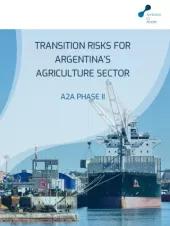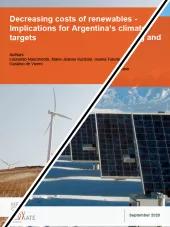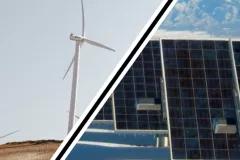The Instituto Nacional de Tecnología Agropecuaria (INTA) and NewClimate analyse the transition risks faced by Argentina’s export-oriented agriculture sector in the context of increasingly carbon-constrained commodity trade. The report suggests that Argentina should find ways of reconciling plans to promote its agri-export model with its stated climate ambition. By exploring and implementing mitigation options that help the sector reduce its emission intensity, Argentina can strengthen its position as a key exporter of agriculture commodities on world markets.
Main findings:
Argentina’s export-oriented agriculture sector is the backbone of the country’s economy. Agricultural commodity exports generated more than 65% of total export revenues in 2020, representing the country’s main source of foreign currency. Argentina is among the most important global exporters of soybean derivatives and bovine meat and aims to further boost agricultural output under its agri-export model.
However, the sector also represents 37% of the country’s total greenhouse gas (GHG) emissions. Sector growth targets and Argentina’s objective to secure its strategic position as a key exporter of soybean derivatives and bovine meat are difficult to reconcile with the country’s stated climate ambition to achieve carbon neutrality by 2050. A credible pathway to carbon neutrality requires all sectors of Argentina’s economy to start decarbonising today.
Survey results indicate that stakeholders representative of Argentina’s export-oriented cropping, dairy, and livestock sectors do not expect the introduction of more stringent domestic GHG mitigation commitments for the agriculture sector and do not perceive these commitments to be of critical relevance for export volumes nor export prices of agricultural commodities. They are, however, aware of transition risks associated with more ambitious climate action in third countries, in particular, in the EU, but generally perceive the economic risks as low.
Stakeholders may underestimate the implication and economic impacts of more stringent environmental requirements imposed on international trade flows by countries with more progressive climate action agenda. The ratification of the EU-Mercosur trade agreement, which faces strong political opposition over the lack of environmental safeguards and enforcement mechanisms, as well as political voices calling for the introduction of a meat tax in the EU, exemplify this.
In this study, we show that an EU carbon tariff with full coverage of agriculture commodity imports would have disruptive impacts on global trade flows, significantly decreasing the competitiveness of exports from key producers such as Argentina to the European Union. Evidence from partial equilibrium modelling suggests that Argentina would incur significant adverse impacts on GDP and domestic employment already at moderate carbon tariff levels. This is as a result of a stark decrease in EU demand for Argentine exports of soybean derivatives and bovine meat as well as lower commodity price levels.
As countries increasingly introduce stricter environmental requirements and taxation schemes, which are imperative for reaching the Paris temperature goals, global trade in agriculture will become more GHG-constrained. The decarbonisation of trade flows is likely to represent a transition risk to key exporters of agricultural commodities such as Argentina. Taking early steps to reduce the GHG intensity of agricultural production systems, in turn, could represent a decisive source of competitive advantage for exporting countries.








